- Main
- About us
- Our teachers
- Our courses
- Russian Test
- Russian learning Resources
- Blog
- Feedback
- Contact
- Support
ALL RIGHTS RESERVED (с) 2017
ALL RIGHTS RESERVED (с) 2017
back
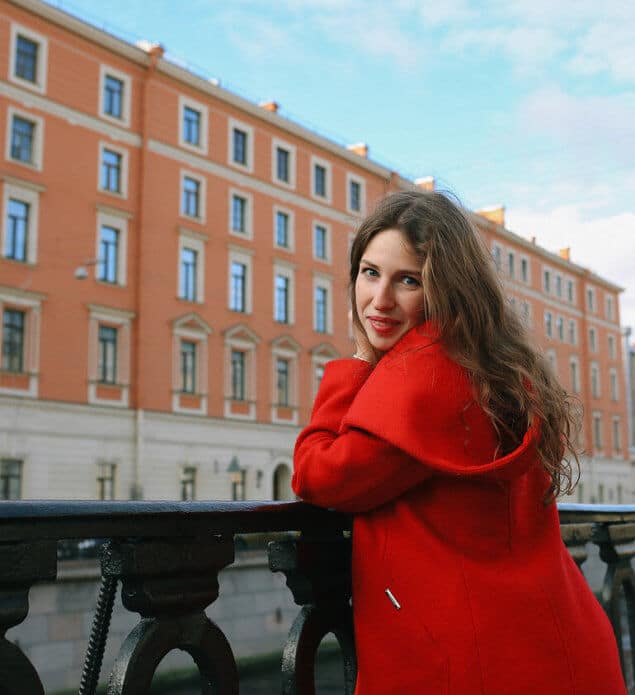
I’ve always been inspired by linguistics and especially by learning about the culture through the language. I graduated from Saint Petersburg State university with a specialization in Orientalism. I studied Arabic and Turkish languages and that is how I learned about very far away and different cultures from my own. I also learned some European languages, such as English, German and French.
It was not always easy but for sure an exciting path. On this path I found not only differences between languages and cultures, but I also learned how to focus on similarities and common things that we share no matter how far is the language or culture that we study from our own.
The most important aspect in teaching the Russian language is to help students access our wonderful and broad culture through language and start enjoying it to the fullest. I also enjoy how my own perception of Russian language changes with every new student who brings his own unique vision and perception of the language on basis of his or her own culture and language.
I love my job because I always meet wonderful people from all over the world and I see how they discover different dimensions of Russian culture through language as I once did with other languages. It is such a unique experience when students express their admiration of our language, culture and of course of our beautiful city Saint Petersburg where I was born and grew up.
Also, I am currently studying psychology and psychoanalysis at the university, which helps me immensely in creating new, enjoyable, unique, and emotionally orientated ways to teach the Russian language.
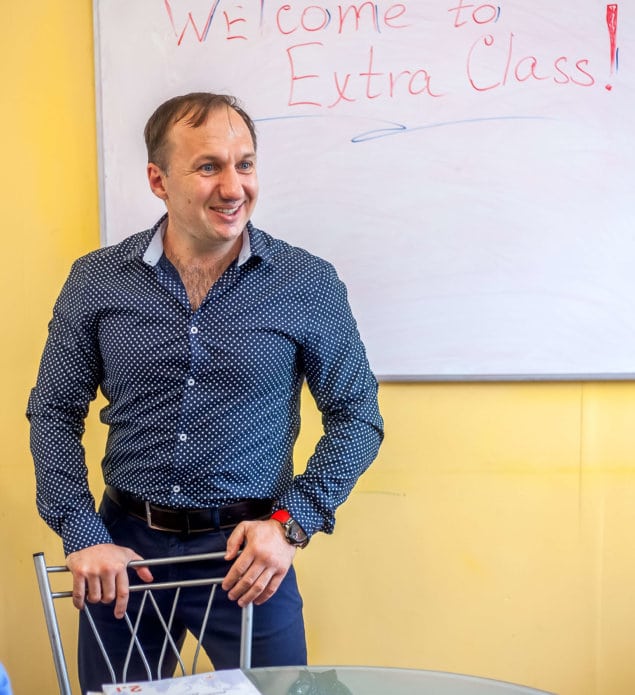
I’ve always loved learning, but I didn’t like my school. It was a Soviet school with all its formal discipline obsession, hypocrisy and authoritarian attitude. By contrast, I’ve often been very lucky with my teachers elsewhere: my sports instructors in martial arts, my music teachers in Jazz school, and of course my professors at St. Petersburg State University.
All that laid the foundation for my reflections on how different teaching can be and how it can inspire learning or turn into its opposite and kill natural human curiosity. I have seen that today, with over 20 years of teaching experience 20-40 in-class hours a week, I believe that what makes a good teacher is a very special synthesis of skills and personality, a good language teacher can be an excellent teacher of molecular biology, as well as a good math teacher can successfully teach history, just having spent enough time to master the subject.
I have seen skilful researchers failing to establish rapport with their students and convey even the most interesting matter in a more or less student-friendly and attractive way. I have also witnessed passionate and charismatic teachers who, due to lack of a good system, failed to achieve good results with their class despite students’ involvement and a vivid atmosphere. I see the key to success in combining deep personal involvement and presentation skills, broad knowledge of the subject and elaborated techniques, personalized and provocative approach that makes students think and talk in real discussions beyond mechanic usage of words and phrases from a textbook. When I hear students continue discussing after the lesson the topics they have just had in their class I regard it as a sign of success. Students in a language class should talk about the things they are likely to discuss with their friends in their mother tongue.
Ivan Tugrenev wrote that «one talks of many things with enthusiasm, but with appetite one talks only of oneself”, so I’ve always believed in personalized approached and relying on student’s interests and goals. Another crucial thing to remember while building a language course is keeping it up-to-date and close to real communication. I remember at my Soviet school I learned by heart some long texts on the history of Komsomol, but so far I haven’t met anybody willing to listen to them.
It’s important to rely on students’ emotions in the process of learning: in our life we remember moments connected with emotions, and hence students will remember the language material from emotionally charged lessons.
I don’t believe in one-size-fits-all methods, I think a successful course, even though based on general modern approach to instruction, must be language-specific in a sense. For example, learning to write in Russian and Chinese are absolutely different. A good Russian course, no matter how communicative, must be based on mastering grammar and built on a thoroughly planned and efficient grammar pattern, which allows for mastering the system in a short time, with fewer efforts and in connection with communication needs.
Many teachers have metaphor that describes how they see what they do in their class. In my teachers’ training workshops I sometimes ask participants about their metaphors, and always get some curious answers. Mine is the following: I’m an instructor helping students on their way across the mountains and teaching them the skills they need to continue their own way.
I’ve been fascinated with education since I went to University in 1987, and I still say teaching and learning are the things really worth spending your life on.
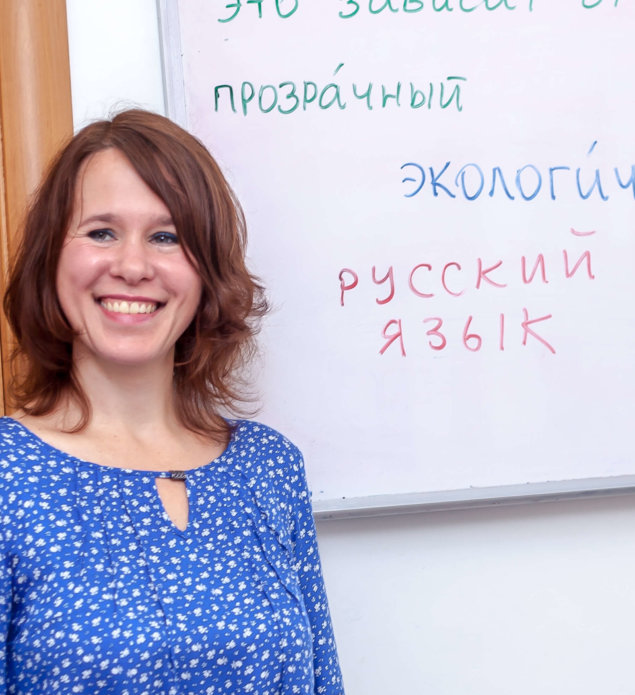
“My job is incredibly interesting. I love it very much for the fact that you can almost immediately get the result. It’s also very challenging to teach those who think that learning Russian is impossible, the language is too difficult and the grammar is too boring, and to prove the opposite.”
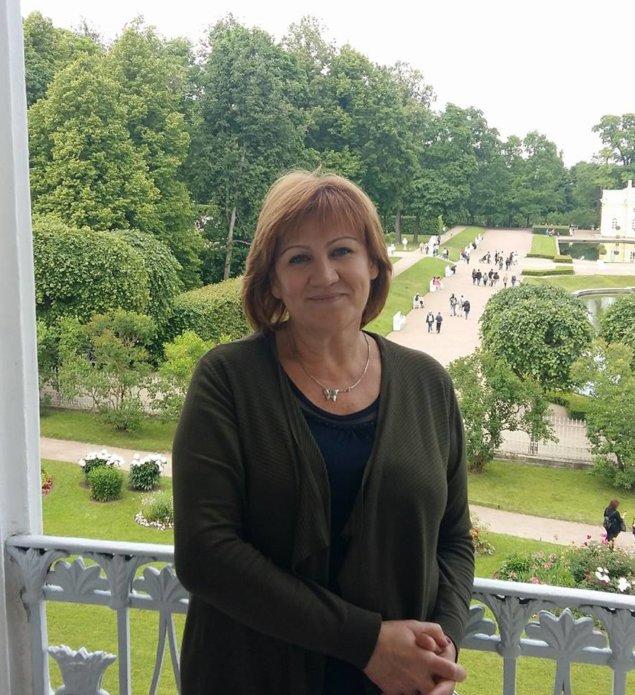
Nina is a devoted teacher and an excellent communicator. Nina runs both group and individual courses, including Business Russian course and TORFL (The Test of Russian as a Foreign Language) Preparation course. She has worked with groups of all levels, as well as with top managers and diplomats from different European countries.
Nina is a competent teacher, who knows how to organize her lessons according to the student’s needs, how to get the best performance from the class and how to manage different and sometimes difficult situations during the lessons.
Her goal is to make students as passionate as she is about the challenging but phenomenal world of Russian language. Her students make a great progress in speaking and comprehension skills, as well as in understanding the complexity and subtlety of Russian grammar.
Besides teaching, Nina likes to share her professional experience with other teachers in school-organized teaching seminars. She also moderates a Speaking club with weekly discussions on hot topics.
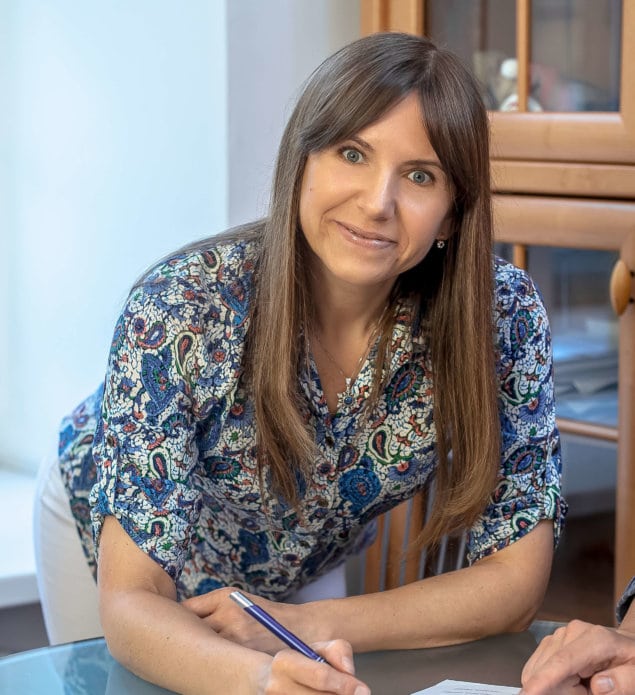
Alla Chernyshova graduated from St. Petersburg Foreign Languages Institute and later got a degree in teaching Russian as a foreign language at St. Petersburg State University.
She has been teaching Russian for 19 years, co-founded Extra Class Language Center and co-authored Russian language books with Stanislav Chernyshov.
Alla’s teaching style is unique and combines efficiency and communication practice with language philosophy, she teaches grammar and words in connection with Russian mentality and the history of the language. In her Russian language course you learn not just how to do things in the language, but you also understand why people do it this way.
Students always find her teaching style both relaxing and inspiring: an ideal combination to make language learning enjoyable and productive.
Here is what Alla says about her job:
I’m so excited when my students fall in love with Russia through learning the language, when they start to understand its soul, when they start feeling the essence of the language and how fascinating and beautiful it is! It’s a great feeling when they start to think in Russian!
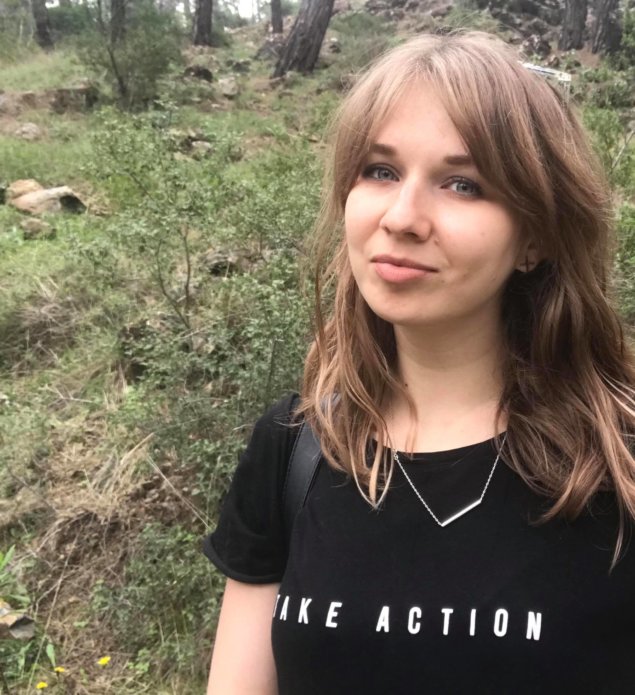
Teaching Russian is my passion, I’m always so excited about my work. I love learning languages too and I never stop doing that. So I also want to show students that learning a language (even Russian) can and even has to be fun. And I prefer to give you a vision of the Russian way of thinking, to help you feel the language, so that it will never be unbearably hard anymore. I think having a sense of humour is vital for studying, but if you are incredibly serious it’s fine too. The best thing about my work is seeing your progress and being proud of my students.
When I was a little girl I heard the word “polyglot”. Who is a polyglot? – I asked. Since then I decided that speaking foreign languages is a great superpower! I have always been interested in foreign languages, but I couldn’t imagine that Russian, my native language is also a foreign language other people can study. When I had to choose a university I was thinking about studying linguistics and major in English, until I saw “Russian as a foreign language” among other linguistic specialisations in a brochure of the University I was about to enrol. Then at that very moment I realised – this was it. That’s what I want to do in my life. Now I have a masters degree in Philology (majoring in teaching Russian as a foreign language) and quite an experience in doing that. I participated as an instructor in US state programs, such as CLS (Critical Language Scholarship) and Fulbright, worked for Chinese-Russian exchange programs, worked with corporations and taught successful exam preparation courses.
My favourite topics are verbs of motion, prefix verbs, syntax. I’m also into etymology and language history. It helps us understand ourselves and it helps you understand us. I enjoy discussing different things in class: it’s amazing how different our backgrounds can be, and yet how much people from opposite sides of the planet have in common. For the same reason I love travelling and try to travel as much as I can, to explore the world and meet people, to learn new things and experience new cultures, which is like a language – it stays with you forever, like a superpower.
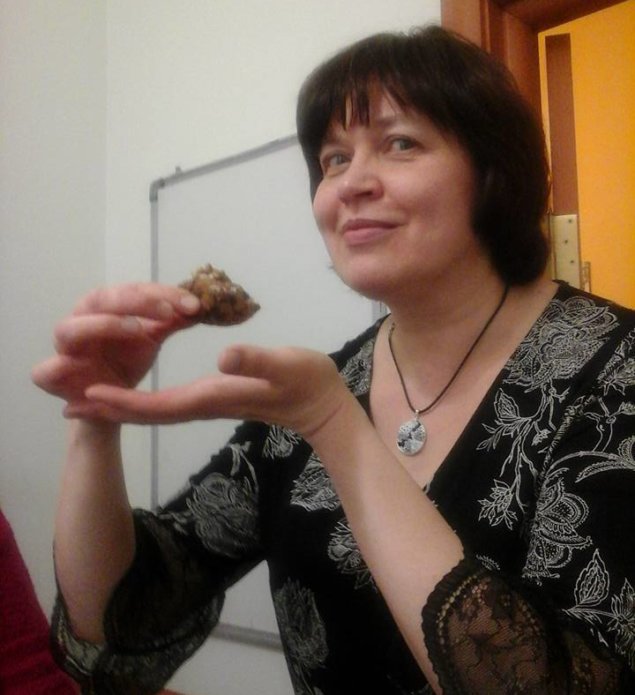
I have a Master’s degree in Russian Philology and Culture and another one in Philosophy and History of Religion, which inspires and shapes my way of teaching.
I adore my job, because it gives me a great chance both to share my knowledge and to learn something new from each of my students. I think all those who study Russian, one of the most difficult languages in the world, are heroes. And at my lessons seek to combine solid academic quality with fun teaching approach.
I’m also sure that languages reflect the mentality of nations, so I want my students to feel the Russian way of thinking when they speak the language. I enjoy immersing the students in Russian reality, so we often sing Russian songs, watch films and cartoons, even cook simple Russian dishes and explore the neighborhood.
I love the Russian sense of humor, so at the lessons I tell a lot of jokes and funny stories to make the process of studying more vivid and to depict our attitude to life. I adore Russian Literature and Art and I want to demonstrate their treasures to students.
I was born in Saint-Petersburg and I’m a local patriot, so I tell my students about history and local peculiarities of our region, when I have a chance to do it. I think my job is well done when my students not only master the grammar and learn to speak, but also start (or, even more, continue) loving and feeling Russian language, culture and the Russians, despite all political situations which can arise in modern world.
Verbs are my favourite Russian grammar topic. I love everything connected with studying verbs: aspects, verbs of motion, prefixes and word formation. I like to explain the origins of unusual and unexpected Russian grammar constructions that students have to face, and I do my best to help my students feel and understand them.
My favorite moment at the lesson is discussion. First of all I feel great satisfaction when I hear my students speak Russian even on the first level. Sometimes they are surprised how much they can already do. And another reason is that it’s always interesting and useful to be in somebody’s shoes and look at ourselves and our Russian mentality from the other people’s point of view.
I like studying languages and I can realize the difficulties that students face and always encourage my students to overcome them.
ALL RIGHTS RESERVED (с) 2017
ALL RIGHTS RESERVED (с) 2017
Thank you.
SPECIAL OFFER FOR THESE SPECIAL TIMES:
We will be happy to see you at our school in St. Petersburg later, at times safer and more favorable for travel, and now you can start learning Russian online with our special promotion: purchase 10 lessons package with a discount and a larger discount for 20 lessons+ package!
Mini-group course: enroll for our offline course in April and June 2023 in Riga for EUR 250 per week! Interested?)
Individual classes – from EUR 23 for a lesson!
45 min. – EUR 30, 10 lessons for 250, 20 lessons for 450;
60 min. – EUR 35, 10 lessons for 300, 20 lessons for 500;
90 min. – EUR 45, 10 lessons for 400, 20 lessons for 750;
These prices are relevant till April 30th.
Welcome to our new project ActiveGrammar: master all Russian cases (and more!) with videos, concise explanations, audio recordings, and automatically checked exercises (ranging from zero to A2 level) by Alla and Stanislav Chernyshov. Subscribe and get access for a really affordable price: pay just EUR 1,67 / month! Visit activerussian.com – subscribe, start learning at your own pace anywhere, anytime, and enjoy your progress!
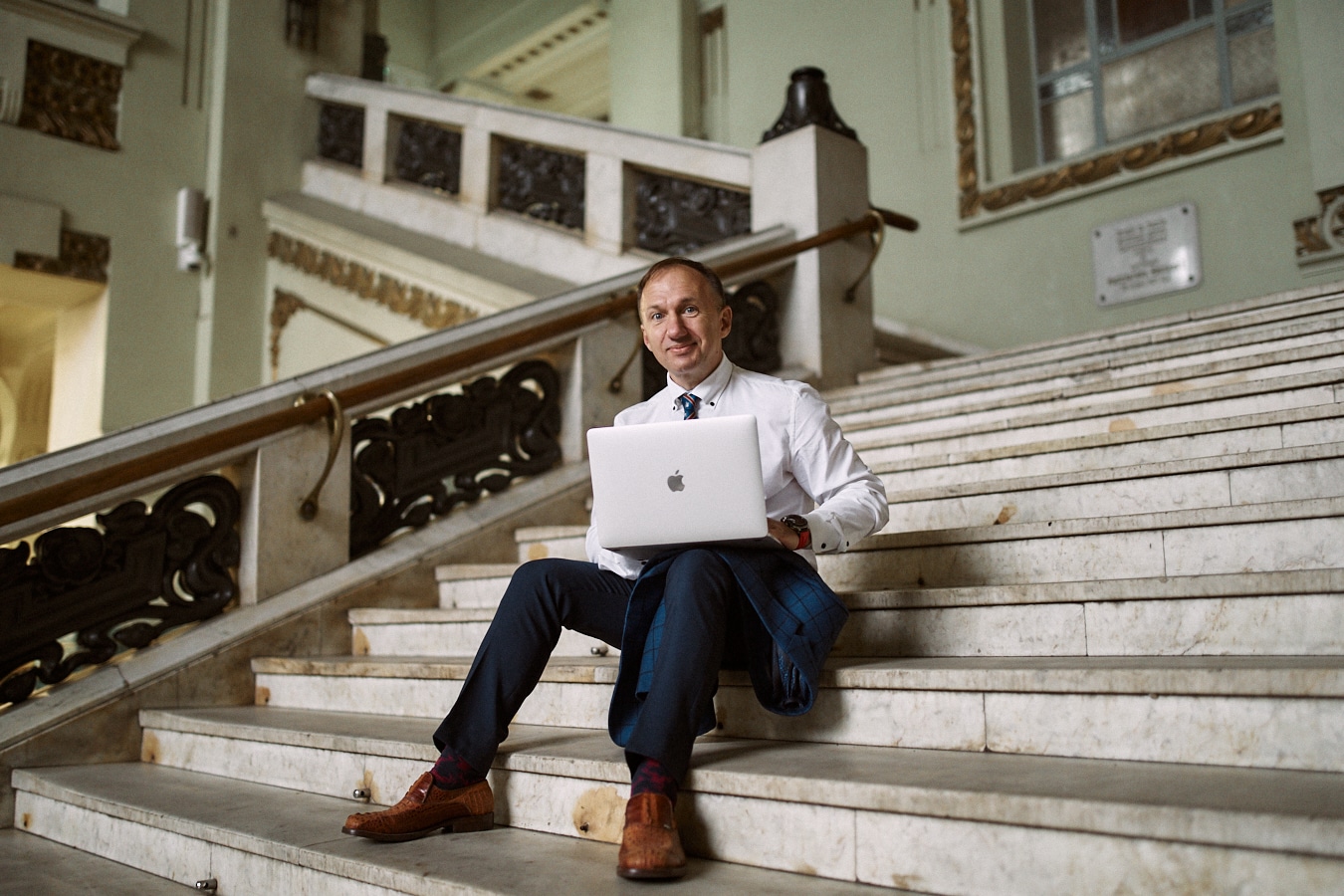
How is the data protected?
To protect your personal information we use a variety of administrative, managerial and technical security measures. Our company adheres to various international standards of control, aimed at securing transactions with personal information, which include certain controls to protect information collected on the Internet.
Our employees are trained to understand and implement these controls and they are familiar with our Privacy Notice, regulations and guidelines.
However, while we strive to protect your personal information, you must also take steps to protect it.
We strongly recommend that you take all possible precautions while you are surfing the Internet. The services and websites organized by us provide for measures that protect against the leakage, unauthorized use and alteration of information that we control. Despite the fact that we are doing everything possible to ensure the integrity and security of our network and systems, we cannot guarantee that our security measures will prevent unauthorized access to this information by third-party hackers.
If this privacy policy changes, you can read about these changes on this page or, in special cases, receive a notification to your e-mail.
In accordance with current legislation, the Administration disclaims any representations and warranties, the provision of which may otherwise be implied, and disclaims liability in respect of the Site, Content and their use.
Under no circumstances will the Site Administration be liable to any party for any direct, indirect, special or other indirect damage as a result of any use of information on this Site or on any other site that has a hyperlink from our site.
Loss of productivity, dismissal or interruption of labor activity, as well as deductions from educational institutions, for any lost profits, suspension of economic activity, loss of programs or data in ashih information systems or otherwise, incurred in connection with access, use or inability to use the Site, Content or any related Internet site, or failure, error, omission, interruption, defect, downtime or delay in transmission, computer virus or system failure, even if the administration will be made explicitly aware of the possibility of such damage.
The user agrees that all possible disputes will be resolved by the rules of law.
The user agrees that the rules and laws on consumer protection may not be applicable to his use of the Site, since he does not provide paid services.
By using this Site, you express your consent to the “Disclaimer” and the established Rules and accept all liability that may be assigned to you.
By filling out the form on our website – you agree to our privacy policy. You also agree that we have the right to disclose your personal data in the following cases:
1) With your consent: In all other cases, before transferring information about you to third parties, our Company undertakes to obtain your explicit consent. For example, our Company may implement a joint offer or tender with a third party, then we will ask you for permission to share your personal information with a third party.
2) Companies working on our behalf: We cooperate with other companies that perform business support functions on our behalf, in connection with which your personal information may be partially disclosed. We require such companies to use information only for the purpose of providing contractual services; they are prohibited from transmitting this information to other parties in situations other than when it is caused by the need to provide the specified services. Examples of business support functions: fulfillment of orders, implementation of applications, issuing prizes and bonuses, conducting surveys among customers and managing information systems.We also disclose aggregated non-personally identifiable information when selecting service providers.
3) Subsidiaries and joint ventures: A subsidiary or a joint venture is an organization whose at least 50% equity interest belongs to the Company. When transferring your information to a partner in a subsidiary or joint venture, our Company requires not to disclose this information to other parties for marketing purposes and not to use your information in any way contrary to your choice. If you have indicated that you do not want to receive any marketing materials from our Company, we will not pass on your information to your partners in subsidiaries and joint ventures for marketing purposes.
4) On jointly positioned or partner pages: Our Company may share information with partner companies, with which it implements special offers and events to promote the product on the jointly positioned pages of our site. When requesting personal data on these pages, you will receive a warning about the transfer of information. The Partner uses any information you provide in accordance with your own privacy notice, which you can read before providing information about yourself.
5) When transferring control over the company: Our Company reserves the right to transfer your personal data in connection with the full or partial sale or transfer of our company or its assets. When selling or transferring business, our Company will provide you with the opportunity to refuse to transfer information about yourself. In some cases, this may mean that the new organization will not be able to continue to provide you with the services or products previously provided by our Company.
6) To law enforcement agencies: Our Company may, without your consent, disclose personal information to third parties for any of the following reasons: in order to avoid violations of the law, regulations or court orders; participation in government investigations; assistance in fraud prevention; and strengthening or protecting the rights of the Company or its subsidiaries.All personal information that is submitted by you for registration on our website can be changed at any time or completely removed from our database upon your request. To do this, you need to contact us in any way convenient for you, using the contact information placed in a special section of our site.
If you want to receive a link, it’s possible to receive a letter.